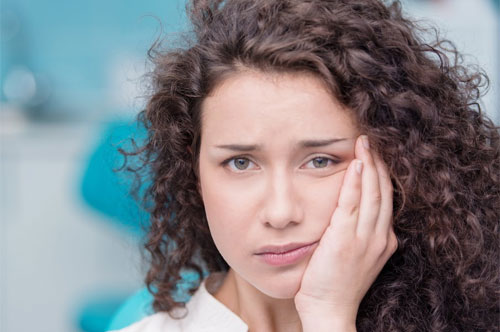I feel so well taken care of at this office! Dr. Calat and his team are friendly, professional, and attentive. I recently needed a tooth extracted, and even though I tend to be an anxious patient, I felt calm and informed throughout my procedure. The procedure itself and recovery period were completely painless, and the office was diligent about following up with me throughout my recovery. I wholeheartedly recommend this practice!
It might not be obvious at first, but anxiety’s toll on teeth is very real. Stress and anxiety affect more than just your mood—they can influence your habits, weaken your immune defenses, and set the stage for serious oral health issues like cavities and gum problems.
How Stress Affects Oral Habits
When anxiety runs high, routines tend to slip. You may brush or floss less often, turn to sugary snacks or drinks for comfort, or stay up late and skip nighttime oral care. These small changes can add up quickly, making your teeth more prone to plaque buildup and decay.
Physical Effects of Anxiety on Your Mouth
Stress can also cause physical symptoms that harm your smile. Many people grind or clench their teeth when they’re tense—often during sleep. This habit wears down enamel, increases tooth sensitivity, and may lead to cracks or chips.
Stress also decreases saliva flow, which normally helps cleanse the mouth and neutralize acids. Without enough saliva, harmful bacteria thrive.
Break the Cycle
The best way to protect your teeth from the effects of anxiety is by staying consistent with healthy habits. Make it a habit to clean your teeth thoroughly morning and night, floss every day, and keep up with routine dental visits for ongoing care.
Incorporating stress-relieving activities—like stretching, journaling, or simply taking time to breathe—can help both your mental and dental health.
Call Today for an Appointment
If you’ve noticed jaw soreness, tooth sensitivity, or more frequent cavities, it might be time to look at anxiety’s toll on teeth more closely. Call Dr. Paul Calat today to schedule your appointment. We’ll help you manage the impact of stress on your smile and keep your oral health on track.
For an appointment with one of our oral surgeons in Greater New York and Jersey City, call us today in 212-918-1859 New York or 201-877-5965 Hoboken. You can also make an appointment online.

Your jaw feels like it’s housing an unwelcome guest that refuses to leave. Maybe you’ve...
Read More
Many people avoid the dentist because they feel scared or worried. This fear can make...
Read More
Do you wake up with jaw pain or headaches? Does your partner complain about grinding...
Read More
